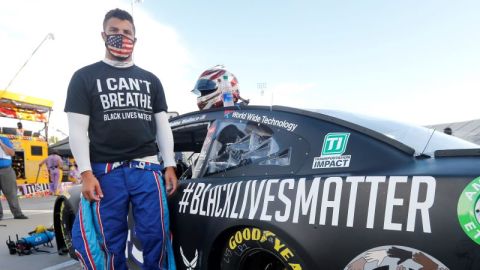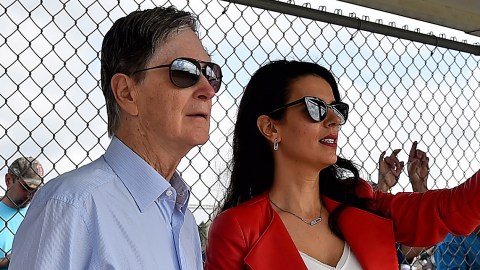Emotions are running high among Celtics fans, who are not happy with the way the first two games of the Eastern Conference Finals were officiated. There is a distinct belief among Bostonians that their team is getting less than a fair shake against the media darlings known as the Miami Heat.
We only have one question to address this week, but as you will see, this one question really covers it all. Let us break down the officiating issues in Game 1 — both the plays that could only have been controversial to the most biased Celtics rooter, and the plays that were actual botched jobs.
In case any readers are curious, the submission below comes in reaction to a story you can read here.
You clearly do not watch the Celts all the time or understand the game. First of all, there has never been a delay of game call that ended in shooting a free throw, never. Secondly, the fact that the free throws taken were missed does not mitigate the fact that when the game was virtually tied, the refs, especially [Dan] Crawford, who have a rep for cheating — yes, call it as it really is — these stupid calls were made. [Shane] Battier pushed, not boxed out, [Rajon] Rondo and he should have been called. Ray [Allen] was fouled before he pushed the guy off. Even the commentators said the foul itself was bogus.
The reality for calling a technical is, first of all, it disrupts the rhythm, which is very important in basketball, and gives a free point, and the ball for an additional two or three points to the other team, for a total possible of 5-7 points for the other team to score just because a tech was scored.
If you have ever been to a game before in person, you would know the Heat especially talk to the refs in between every play, as does their coach. So do not blame the Celtics. [Ed] Malloy and Crawford cheated, as they often do. We were tied at halftime despite this, despite a back-to-back. Do your job and report the truth.
— Susie Smith, Boston
I do appreciate your passion for the Celtics, Susie. You make a few solid points, which we will get to in a moment. First, I'd like to clear up some factual errors with your comment, because you are not the only fan who I have heard make similar claims about the officiating in Game 1.
First off, it is incorrect that "there has never been a delay of game call that ended in shooting a free throw, never." Rule 12, Section II, Article (a), items 1-3 of the NBA rule book stipulate that "A delay-of-game shall be called for: (1) Preventing the ball from being promptly put into play; (2) Interfering with the ball after a successful field goal; (3) Failing to immediately pass the ball to the nearest official when a personal foul or violation is assessed." In fact, a technical foul being given for such offenses is not a rare occurrence in the NBA.
The Celtics were issued a team technical after Kevin Garnett tipped the ball after it went through the rim on a layup by Rajon Rondo with 7:13 remaining in the second quarter — a violation of items one and two. A delay-of-game warning had been given with 7:48 left in the second quarter, when Garnett was called for an offensive foul and Rondo rolled the ball to the opposite corner of where the nearest official was standing, a violation of item three.
These sorts of calls are always subjective. If a player is standing directly under the basket and a scored ball falls into his hands, for instance, the refs typically do not assess a delay-of-game. Garnett's delay-of-game was ticky-tack at best, but he did noticeably reach over a Heat player to tip the ball.
As for the claim that "the refs, especially [Dan] Crawford… have a rep for cheating," I have to say I think Crawford is one of the best in the business. You may have him confused with Joey Crawford, who is disliked in most circles and who former NBA referee Tim Donaghy implied may have been a little helpful to Allen Iverson over the years.
Listen, Battier was boxing out Rondo. His butt was squarely in Rondo's abdomen for a textbook box-out. Maybe it was a little emphatic for Rondo's liking, but I have a feeling Rondo's coaches at Kentucky and Oak Hill taught him to box out with exactly that type of fervor.
Allen's technical, and the foul that preceded it, indeed was "bogus." If Allen's reaction to the call was a technical, there would be a half-dozen techs issued every game. I do not put much stock in the fact that "even the commentators said the foul itself was bogus," though. After all, Jeff Van Gundy could have said it was the greatest call in the history of organized sports and I still would have agreed with you that it was "bogus."
One thing I have noticed from covering basketball at the high school, college and professional levels is fan confusion about the different rules for each level of the sport. Contrary to the commonly held belief, a technical foul in the NBA does not grant the opposing team "a free point and the ball." NBA rule No. 12, Section V, article (h) says, "The ball shall be awarded to the team which had possession at the time the technical foul was assessed." The Heat assumed possession after the Celtics' technicals because they had possession at the time of the foul, or they were due to get possession off a made basket.
It may be surprising to learn that I have, in fact, "been to a game before in person," and I am well aware that "the Heat especially talk to the refs in between every play, as does their coach." Watch Doc Rivers carefully in the next game, though. He talks to the refs between almost every play, too. Every coach does. That was what made Rivers' technical so surprising, because the Celtics coach did not appear to say or do anything beyond the norm for an NBA coach.
Oh, and Game 1 was not part of a back-to-back. A "back-to-back" by definition means playing on consecutive days. The Celtics finished off Game 7 against the Sixers on Saturday. They played Game 1 on Monday.
Now on to the pertinent point, and that is the one Susie makes in her second-to-last sentence: The Celtics were tied at halftime despite all the shenanigans. Show me Rondo getting raked across the face by Dwyane Wade during overtime in Game 2, and I am much more likely to acknowledge that an officiating call (or non-call) directly affected the outcome. A play in the second quarter, when only one or even zero points are scored, possession does not change and a personal foul is not assessed, should not affect the rhythm of men who have spent their entire adult lives playing basketball for a living. Those plays leave more than enough room for a team to recover and get on with winning the game.
The technicals did not help, but there were far more basketball-related plays that would have led to the Celtics leading at halftime of the first game. The play on which Allen's technical occurred was a perfect example. Yes, the tech was absurd, but the Celtics would never have been in the situation if they had prevented Mike Miller from getting two offensive rebounds earlier in the same trip down the court. On that possession, Allen's technical was not the thing that broke the Celtics' backs — it was their failure to secure a defensive rebound.
That was the story of the first two games in the series. The Celtics got the short end of many close calls, but they put themselves into those positions by their malfunctions in other areas. Officiating played a role in Games 1 and 2, as it always does, but its impact on the outcome was secondary to what the Celtics themselves did, or failed to do.
Have a question for Ben Watanabe? Send it to him via Twitter at @BenjeeBallgame or send it here.



